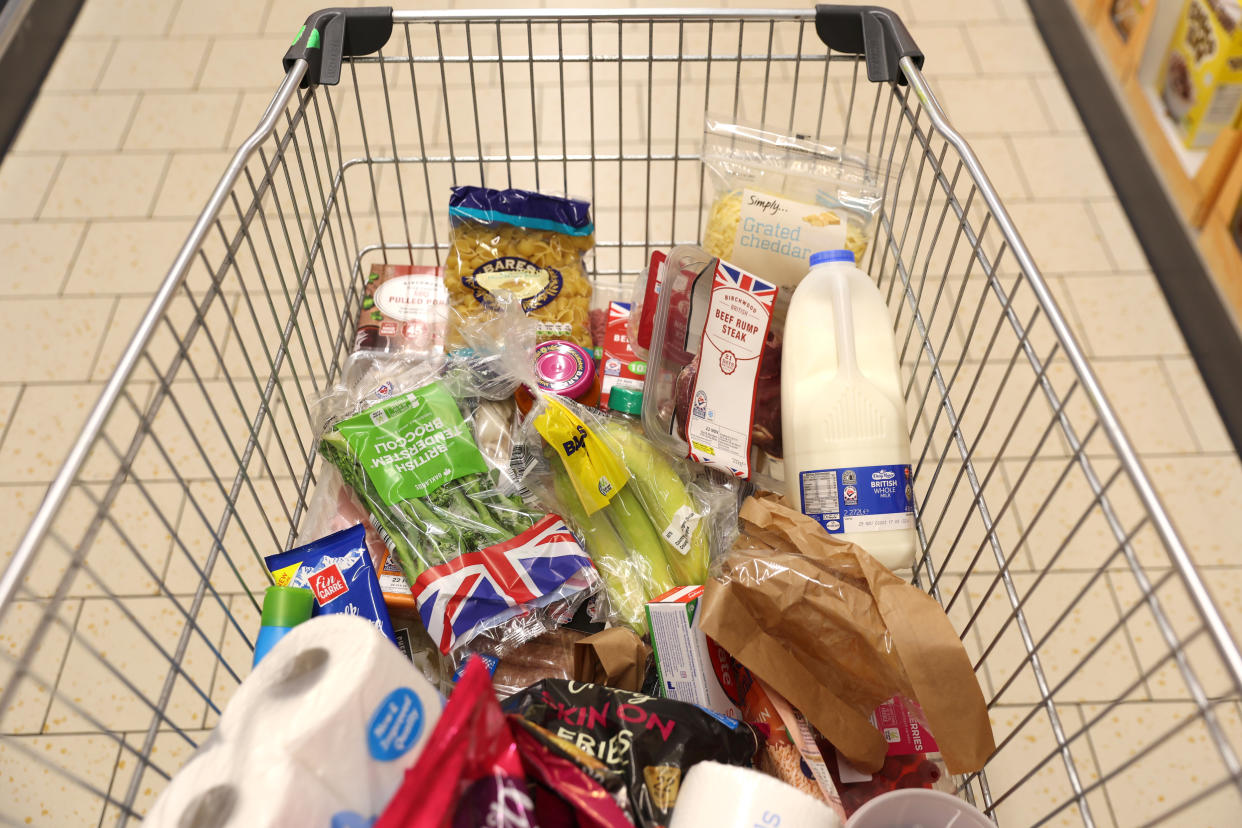UK inflation slows to 3.9%

UK inflation fell by more than expected to 3.9% in November, taking it to the lowest annual rate for more than two years.
Transport, recreation and culture, and food and non-alcoholic beverages were the biggest drivers of inflation’s larger than expected fall from 4.6% to 3.9%, according to the Office for National Statistics (ONS).
UK households should feel some relief when going grocery shopping as bread and cakes prices fell between October and November, as did meat, milk, cheese and eggs.
What does inflation mean?
Inflation is the increase in the price of something over time. If a loaf of bread costs £1 but £1.05 a year later, then annual bread inflation is 5%.
Read more: The key money events for 2024, from NI changes to energy prices
ONS chief economist Grant Fitzner said: “Inflation eased again to its lowest annual rate for over two years, but prices remain substantially above what they were before the invasion of Ukraine.
“The biggest driver for this month’s fall was a decrease in fuel prices after an increase at the same time last year.
“Food prices also pulled down inflation, as they rose much more slowly than this time last year.”
However, fruit bucked the downward trend, with prices of strawberries, for example, rising.
After the sharp fall in inflation, chancellor Jeremy Hunt said: “With inflation more than halved we are starting to remove inflationary pressures from the economy.
“Alongside the business tax cuts announced in the Autumn statement this means we are back on the path to healthy, sustainable growth.
“But many families are still struggling with high prices so we will continue to prioritise measures that help with cost of living pressures.”
Read more: Interest rates to remain high, warns Bank of England’s Breeden
Second-hand car prices fell by 2.1% between October and November while air fares retreated by 13.9%, compared with 10.1% a year ago.
Core inflation, which strips out volatile food and energy prices, fell to 5.1% in November. This indicator is closely monitored by the Bank of England when deciding interest rates.
This has reinforced forecasts for interest rate cuts, which would deliver a boost to households preparing to remortgage their homes.
Helen Morrissey, head of retirement analysis at Hargreaves Lansdown, said: “Keeping the pause button pressed will be welcome news for those on variable rate mortgages who have seen their costs rise as well as those with credit card debt. Fixed rate mortgages could fall slightly, as the prospect of further rate rises fades but we’re not expecting any big moves until the market starts to expect a rate cut – which could be some time off yet.
“It’s a welcome fall but it’s worth saying inflation remains higher than other countries such as Germany and well above the Bank’s 2% target.”
What is happening to inflation in Europe and the US?
Eurozone inflation has dropped more sharply than expected this month, as falling energy prices ease the cost of living crisis.
According to statistics body Eurostat, the annual inflation rate came in at 2.4% in November across the single currency bloc, down from 2.9% the month before. It was the slowest annual pace since July 2021.
In the US, inflation was 3.1% for the 12 months to November, down from 3.2% in the year to October,.
Watch: Bigger than expected fall in inflation
Download the Yahoo Finance app, available for Apple and Android.


